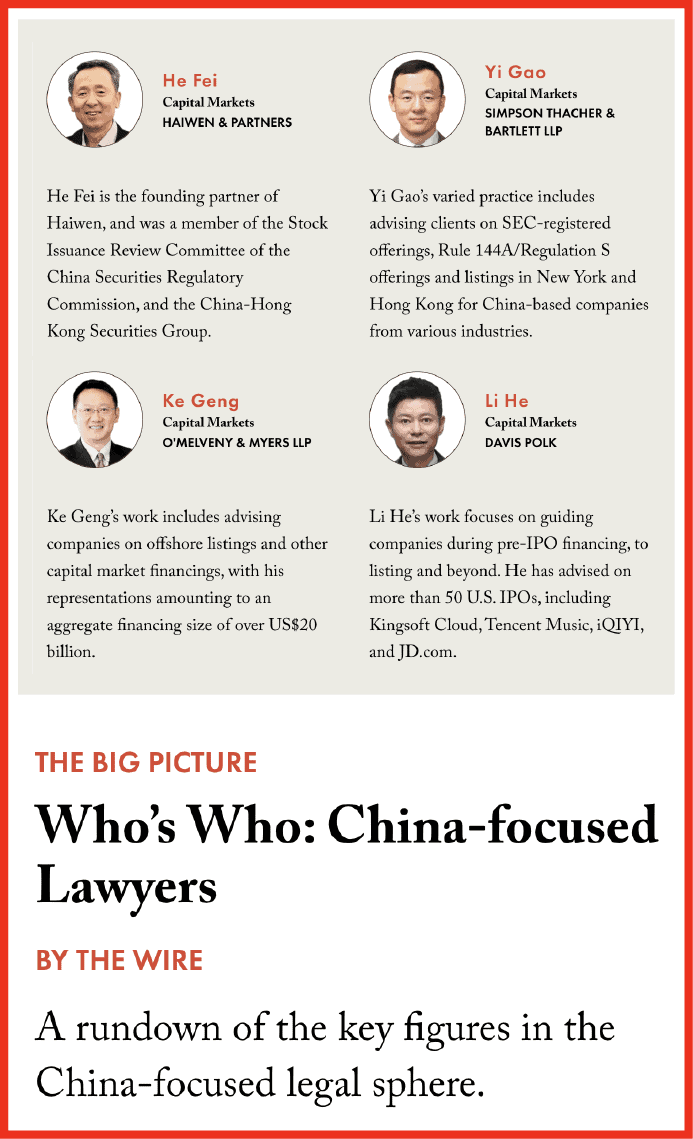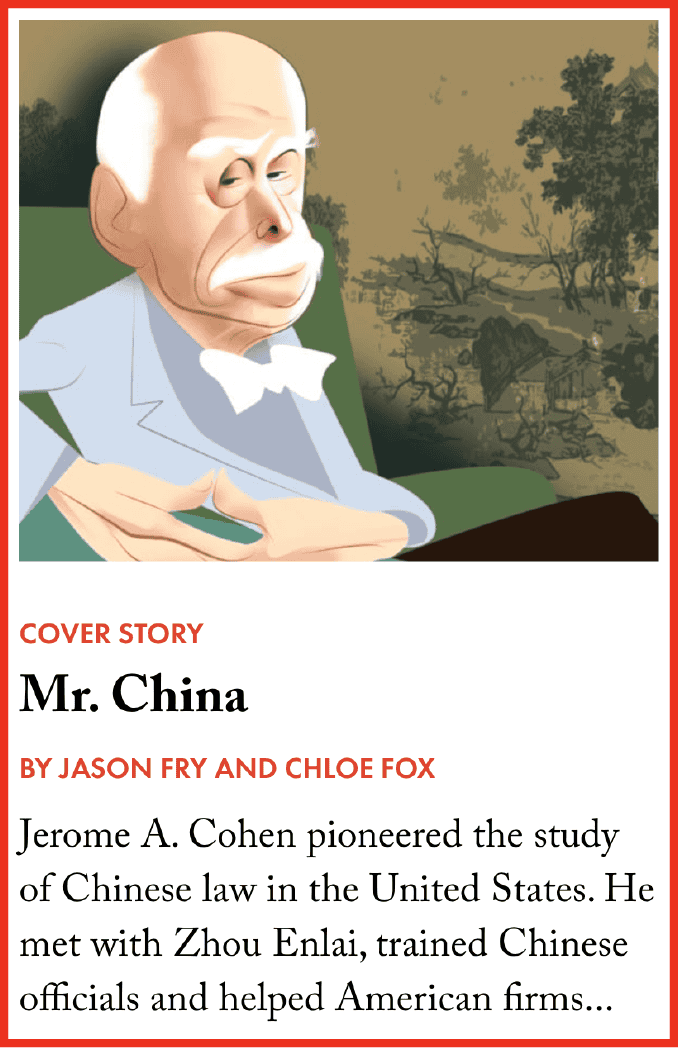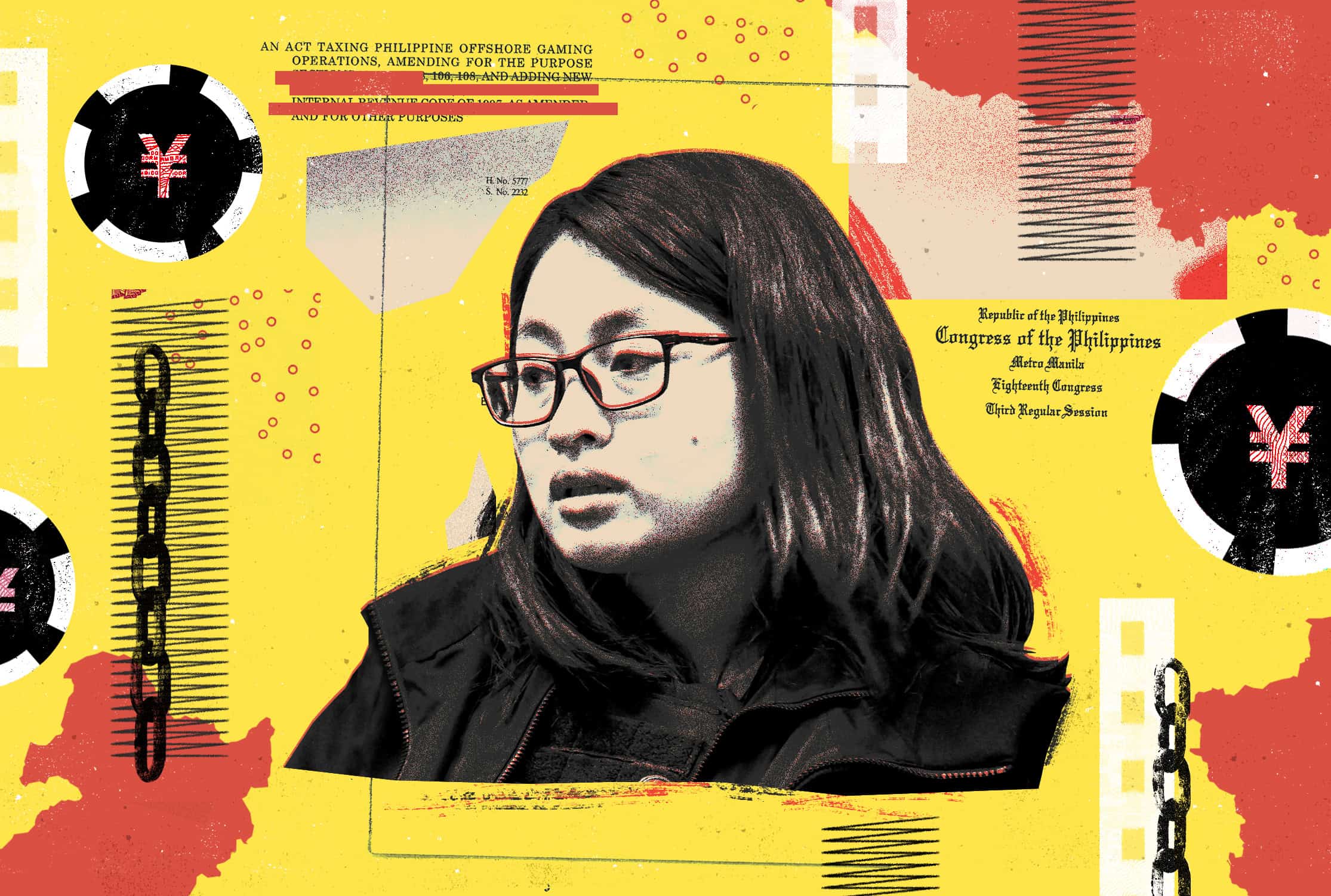Jerome A. Cohen is a pioneer in the field of Chinese legal studies in the United States. His storied career began in the early 1960s, when he studied China’s legal system. Cohen’s 1968 book The Criminal Process in the People’s Republic of China, 1949- 1963: An Introduction became a foundational text in the field, establishing him as an authority and leaving him with a host of former students and mentees scattered across the landscape of China scholars, lawyers, officials and activists. His career moved from scholar to professor, from contract negotiation lawyer to human rights advocate. At 94 years old, Cohen has an upcoming memoir, Eastward, Westward, to be published in February.

Illustration by Kate Copeland
Q: Ten years ago, in 2014, the annual conference of the Chinese Communist Party’s top leadership body named as its theme the ‘rule of law’ for the first time. First, could you talk about what the Party’s goals in focusing on rule of law were back then?
A: It’s never been clear what they are doing with the rule of law. You have the rule by law, which is of obvious interest to them.
Lenin was a great believer in rule by law. Once in power, the Bolsheviks saw the importance of the law. If you’re ruling a country, you want to make sure that the whole country is pursuing policies that you want, and that requires communication, and that communication often takes the form of law. So you can be a big booster of rule by law, but not believe in rule of law.
And the Party has been wrestling with this, of course, for a long time. Xi Jinping supposedly had his own views of the law — despite doing his undergraduate studies in chemical engineering, like many other party leaders, legitimate or not, he managed to later receive a doctorate of law. So nobody knew what to expect from Xi Jinping, but relatively few expected what we’ve had in the last decade.
| BIO AT A GLANCE | |
|---|---|
| AGE | 94 |
| BIRTHPLACE | Elizabeth, NJ, USA |
| CURRENT POSITION | Adjunct Senior Fellow for Asia, Council on Foreign Relations |
I have never taken very seriously their efforts to indicate that they too are rule abiding, because one thing is clear: whenever they feel like it, they don’t give a damn even about their own rules. They just act. But generally, Xi Jinping tries to give the impression of following the law and having an orderly state.
There has been, of course, continuing development of certain aspects of law. They can’t afford to neglect it, and participation in the economy requires some agreement with others. Contracts are constantly made, and a contract is an enforceable promise, so you have to have a system that enforces it. And what kind of a system that should be is what people have been concerned with.

You mentioned the distinction between the rule of law and rule by law. In your view, which is more appropriate of a term? Or, in the context of China, does it change depending on what era or specific areas you’re talking about?
This has been a question going back to China’s beginning, the first emperor and the use of law. When Xi Jinping first took over, he tried to resurrect the great traditions of China. And although until recently the Communists have always condemned Confucius, they resurrected him over the last 20 years or so, and Xi Jinping likes to bring that up occasionally.
At the same time, Xi used to bring up Qin Shi Huangdi [China’s first emperor] and the glorious Chinese imperial tradition. But people, including me, pointed out he’s a lot closer to Qin Shi Huangdi than to Confucius, because Qin was the first one to see he wanted to use the law to push people around. Law was an instrument of control, not an instrument of protecting individuals against arbitrary power. So Xi no longer mentions Qin.
But this has been a constant problem in Chinese history. Is there protection given to people by the state, or is law simply an instrument for suppressing them, getting them to do what you want?
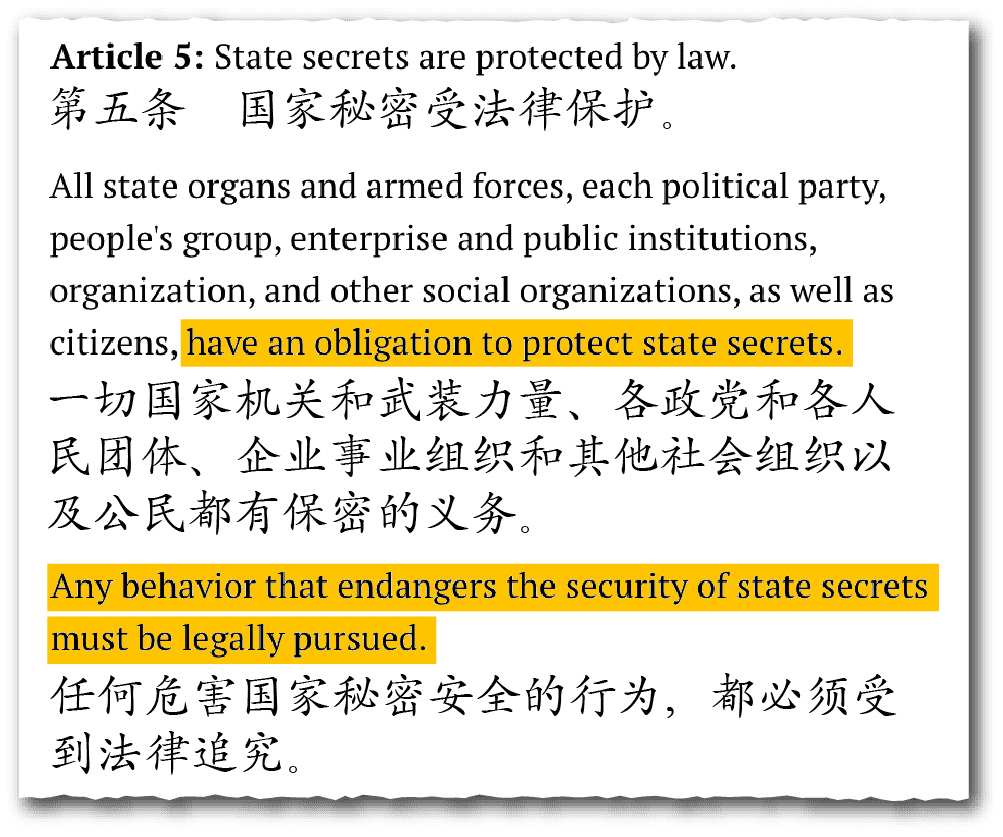
And the hope, of course, in China in recent decades has been that the legal system would develop into one where there would be rule of law, where laws would protect people. But what they have is a government where it’s by law, using law to suppress them as effectively as the government can.
Can you go over the sorts of changes you’ve seen over the past ten years in regards to the legal landscape in China?
Repression has increased, in practice. There was always, of course, repression and theory to support it, but Xi Jinping’s rule in the last 10 years has been more repressive than people expected, and it’s causing a backfire. How great, we can’t see at this point.
| MISCELLANEA | |
|---|---|
| FAVORITE BOOK | My Old Home by Orville Schell |
| FAVORITE FILM | The Blue Angel |
| FAVORITE MUSIC | Violin Concertos |
| MOST ADMIRED | Felix Frankfurter |
But I feel confident that what China is experiencing now with respect to the application of law is going to engender a reaction, just as Mao’s Cultural Revolution did. It’s the opposite, in a way, from the Cultural Revolution, because that was out of control. It was in the hands of lower level people, but what’s happening here is coming from the center.
In regards to that, what do you see as the future of rule of law in China, and would any changes be during the Xi Jinping era, or do you think it would have to be beyond his time in office?
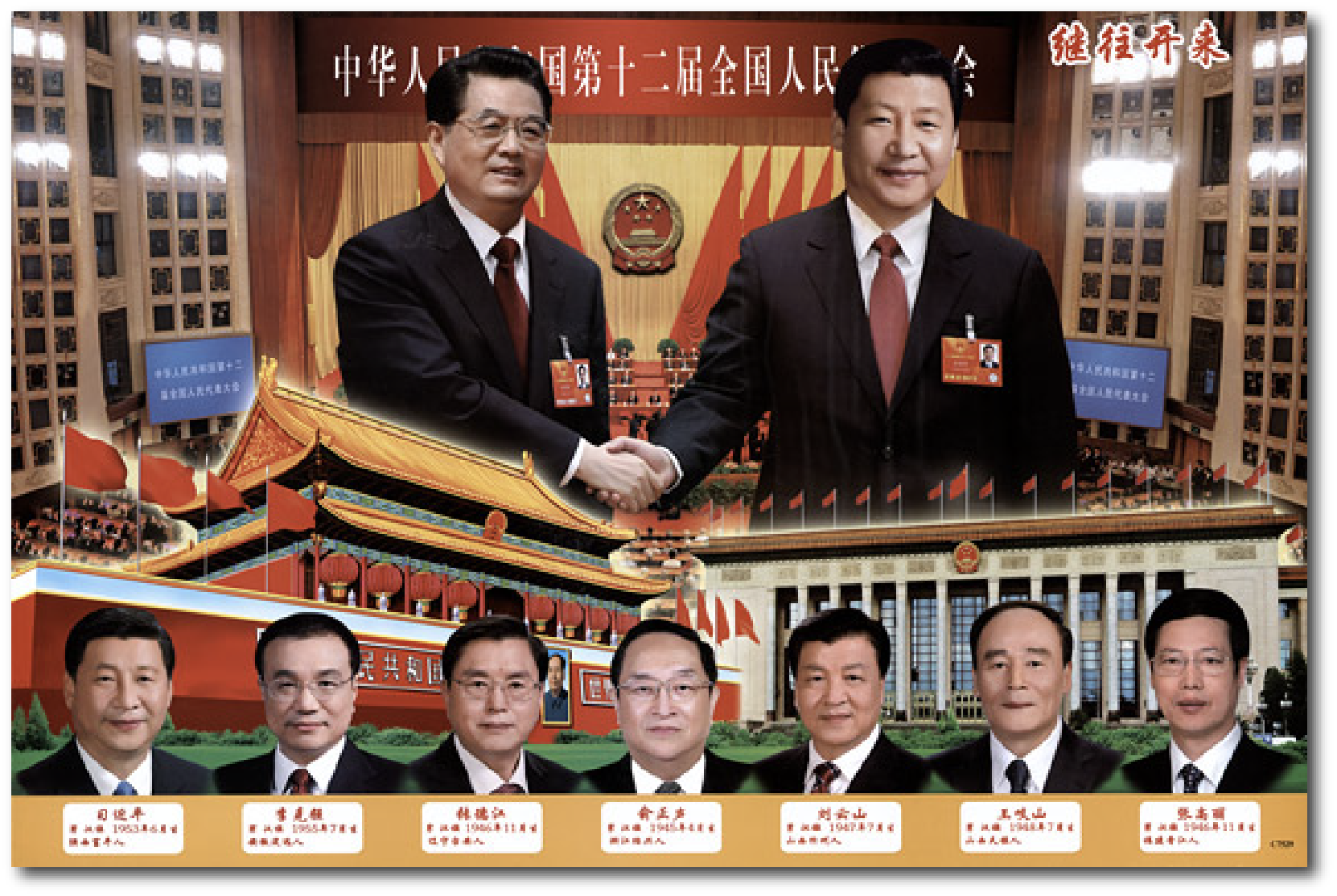
Well, we all learn from experience, but I don’t think Xi Jinping is likely to learn, from what he’s experienced so far, that he should reverse himself. So China is stuck with him as long as he rules. How long he’ll rule is hard to say. There’s unlikely to be a change until he’s gone, but when he’s gone, I think there will be.
How much change is hard to predict, but there seems to be widespread dissatisfaction with his repression — not among the masses, but among the elite, the hundreds or thousands of people who really run China under him. Many, many are unhappy.
They’re unhappy at what they see as the wrong policies. They’re unhappy about what they see as frequent injustice. They don’t know why it should be this way. They speak out — speak but not write — behind closed doors, at dinners.
China’s development has been pendulum-like: one extreme to the other, back and forth. It depends where on the pendulum that you locate things. At the moment, we’re in a repressive period. That won’t last. It can’t last.
I’m surprised, having lived in China myself, I never regarded it as safe to have a conversation at a restaurant where under the table might well be a listening device. And yet today, there seems to be a freedom of expression within the elite, but not in public, that expresses considerable dissatisfaction.
Jerome Cohen discusses ‘Re-education Through Labor’ and China’s criminal justice system during a talk at UC San Diego, April 24, 2008. Credit: UCTV
Are there any bright spots you see currently in the legal situation or community in China?
They’re not obvious to me, but of course, my focus is a traditional one involving mostly criminal justice, or more broadly, the administration of affairs affecting individuals by the government, what we might call administrative law.
I don’t get involved in high tech. If there’s a deal being made between some AI company in China and one in Europe or the United States, I no longer know about that. What’s happened to law in the last 20 years, the importance of technology, that’s new to me, but I’m sure for people who are involved in these industries, there must be something giving them some confidence in the legal system, broadly construed. But I don’t see it.
What I know is locking people up. I used to be a prosecutor myself. I was a defense lawyer. This is an area I know well. My prime interest has been in trying to muster as much protection as possible for those people who still might consider themselves human rights lawyers.
The plight of the lawyer in China is worse in recent years than it was, let’s say 20 years ago. About 2005 or 2006 was a period when it looked like, despite the Communist system, the legal system was going to develop, that there would be protections for the individual lawyers and their clients, but that’s pretty much disappeared.
Internationally, a rising concern is China’s attempts at exercising extraterritorial jurisdiction. What’s worried you about China using its legal apparatus to go after people outside its borders?
What first worried me is Hong Kong. The Hong Kong government, under the new national security law, has claimed to exercise jurisdiction over people and events that occur outside China, and especially some of the younger people who helped take part in the violence in Hong Kong in 2019. China has explicitly claimed it can regulate and punish what they do there.

Of course, many countries claim to have jurisdiction over their own people abroad. And you could say that’s what this is, it’s just an attempt to punish their own people. But it isn’t. They don’t limit it that way. When I talk to you here, or if I give a speech in public, I can be deemed by them to have violated their law in my country, even though what I’m doing is legal in my country, and that’s a claim that can’t stand up, but it hasn’t been severely tested yet.
Based on your experiences earlier on with China’s reforms and opening up, are you surprised at the direction China has gone? Did you think the trajectory was going to be different?
I’ve often written and said that events are unpredictable. We haven’t known which way China would go. When I lived there and worked to help the system, it wasn’t clear how much they would take to the change. So much depends on events that are purely domestic, so much depends on leadership in China.
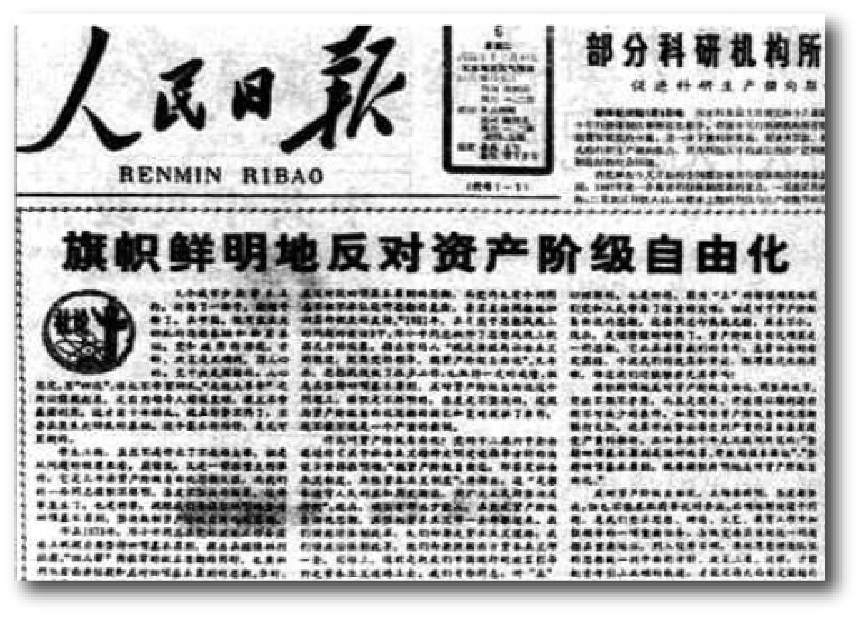
Things began to turn in a disappointing fashion in 1987 when they crushed the bourgeois liberalization movement and Hu Yaobang fell. Then 1989 was a definite change of path. Things got out of control, and the party panicked and came down hard. History didn’t have to go that way. Zhao Ziyang didn’t have to fall. Li Peng didn’t have to come out on top; in many ways, he wasn’t as smart as Zhao Ziyang or Hu Yaobang.
There are crises in countries where some people win, some lose — we’re facing one here in the U.S. that will tell our direction. So I’ve always regarded the future as open with regard to China. Much depends on how we play our cards, and much depends, of course, on their internal development. But the future is often unpredictable, so I can’t say.

Remember, I’m old. I’m older than the generation of my students and colleagues who are in their 70s now, but they took June 4 [1989 — the Tiananmen massacre] harder than I did. They had only known the period of the late 1970s and 1980s, by and large a very optimistic period. I had lived through the Cultural Revolution, so I knew China could go from one way to another, as it did in 1966, and so I wasn’t so surprised at the recent years’ developments. And I still think the future is open.
I’m not totally pessimistic, as some people are. China’s development has been pendulum-like: one extreme to the other, back and forth. It depends where on the pendulum that you locate things. At the moment, we’re in a repressive period. That won’t last. It can’t last.
You mentioned our election. What do you see happening to U.S.-China relations if Trump wins the presidency again? [Note: This interview was conducted on October 29, prior to the election.]
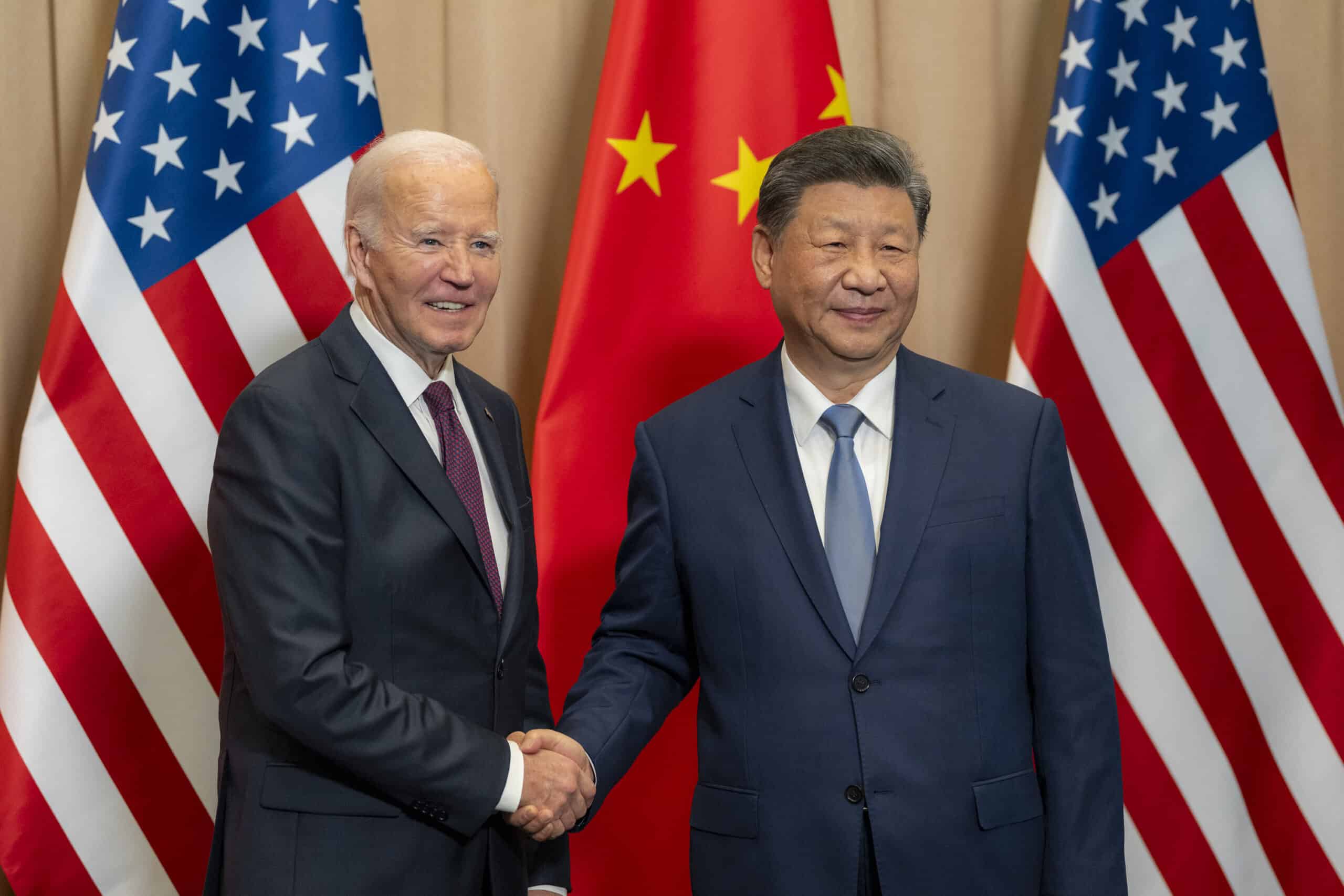
Well, we don’t know. What Trump does is very hard to predict, but dangerous. Dangerous because of his uncertain attitude toward Taiwan and will he really be helpful in dealing with the mainland?
There are so many things that one could do to improve relations with China. It seems obvious that the mainland isn’t looking for war now to take over Taiwan, despite all the hoopla about it, and we should be challenging them to restore many of the symbols and functions of U.S.-China relations from some years ago.
If I were running the show, I would certainly try to get rid of the tariffs, which are stupid from our point of view, and improve the cooperation to the extent possible with their technology people, recognizing there are real national security questions here. I would certainly bring back the consular relations. Reopen our consulate in Chengdu. Reopen theirs in Houston. Come back with the Peace Corps, and all the other opportunities to get Americans back into China.

There are so few Americans. If we have a few hundred there, that’s something, but we need thousands of Americans there. And we should be offering all this opportunity while still preparing for the worst vis-a-vis Taiwan, if necessary. So I’m a person who thinks we should be stronger, more prepared, if necessary, for violence, but yet move much further to avert it.
You noted the lack of Americans, or the lack of, really, most foreigners in China right now. I wanted to ask about the relationship between rule of law and foreign investment confidence. Why is the current environment so hostile to foreign companies who would otherwise maybe want to be in China?
There is no doubt that if China presents a legal system that can be relied on to give a fair judgment in disputes, that would be a big encouragement to foreign investment. Right now, many investors have lost confidence, even those who have had long-standing agreements.
And yet there is still a legal system for certain purposes, involving intellectual property for example. And there still are some credible institutions functioning in China that might give a company that wanted to make a contract now involving AI or whatever not confidence, but enough nerve to bear the risk of what happens.
I would advise any company that deals with China now to try to make an arrangement that doesn’t rely on Chinese legal institutions exclusively to settle any dispute. It’s hard to do because nationalism has caused China to take the position since the 1980s that if you come to China to invest, you’ve got to settle your disputes here — we don’t want to go to Singapore or London, etc. But the Chinese are practical people. If pressed enough, if the circumstances are right, they will be more flexible about dispute resolution.
China has many able people. Many of them are capable of being good lawyers, judges. Some of them are working today, working hard to cooperate with international institutions like the International Labour Organization.
People shouldn’t abandon China. They should learn more from history, keep an open mind, not accept every formulation or explanation of our own government, and understand to what extent domestic politics can interfere.
China has got the capacity, at this point, to inspire more confidence in foreign investors than it does in reality at the moment, but the broader political environment can’t be ignored. And if it’s obvious that the government is very hostile to America or the West, it’s going to unnerve investors. Even though they might, if they got through the contract stage, feel confidence in the immediate legal arrangements, the broader environment would make them dubious about the situation.
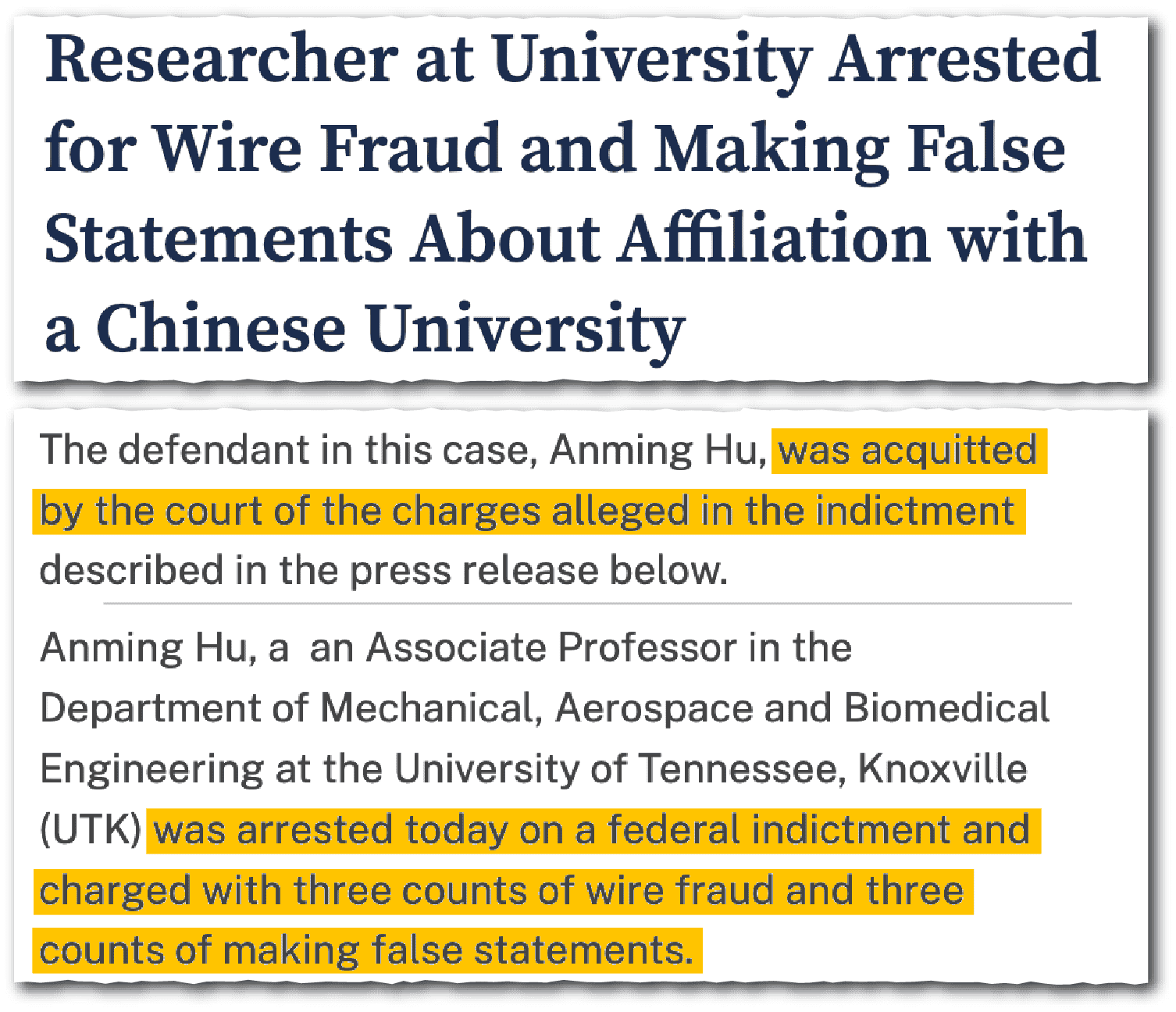
There is no doubt politics is in command in China. And the people in the legal system can’t ignore it. They can only do their best within the limits of the broader political environment.
So I hope the environment will improve in many ways, and it involves, of course, some thought reform in America in terms of getting a better grip on the distrust of young Chinese scientists or other people who come over here, and how to cooperate with them. We have to get more sensible than we have been in some of our Justice Department pursuits of people.
We can turn this thing around, but it’s going to take enlightened, persistent effort, national leadership here at home that gives a different view of China that helps people understand better, why does China keep a claim to Taiwan? Why does China want to have a bigger role in the UN and in other international organizations? We need leaders who are willing to learn themselves and then disseminate that learning and that attitude, because it’s madness to go on in a way that threatens the serious revival of hostility.
What is the one thing you’d want others to take away from your experiences and long career?
People shouldn’t abandon China. They should learn more from history, keep an open mind, not accept every formulation or explanation of our own government, and understand to what extent domestic politics can interfere. And I would still urge people, as I have for half a century, to go into this field.
It’s a fascinating field. It’s very, very important. You don’t have to go into it with blinders, but understand China’s relation to the rest of the world and what’s going on. And try hard to go live there and get to know the Chinese people — I’d certainly get to know them when they’re in this country.
There are many satisfactions in working in this area, as there are in working in many areas. But I would not disregard this right now. It’s unpopular, and the last time I taught a class on the legal aspects of doing business with China was probably 25 years ago. I had 118 students, even though this wasn’t the course on the bar exam, but they knew they were going out in the world as lawyers, and here was an opportunity they had to understand. Today, I wouldn’t have that many students. So I think people have to not abandon China, and should try to go there and learn what they can.
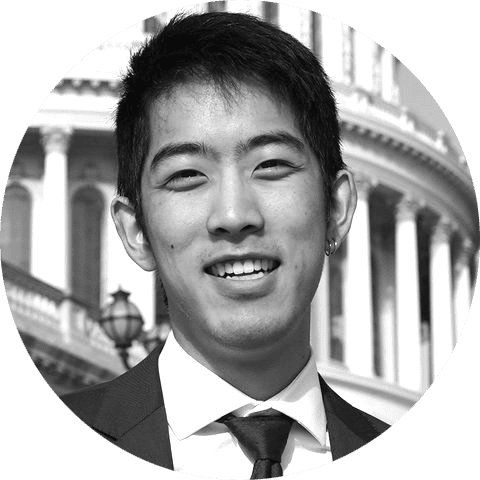
Evan Peng is a journalist based in New York. His work has appeared in POLITICO and Bloomberg.

